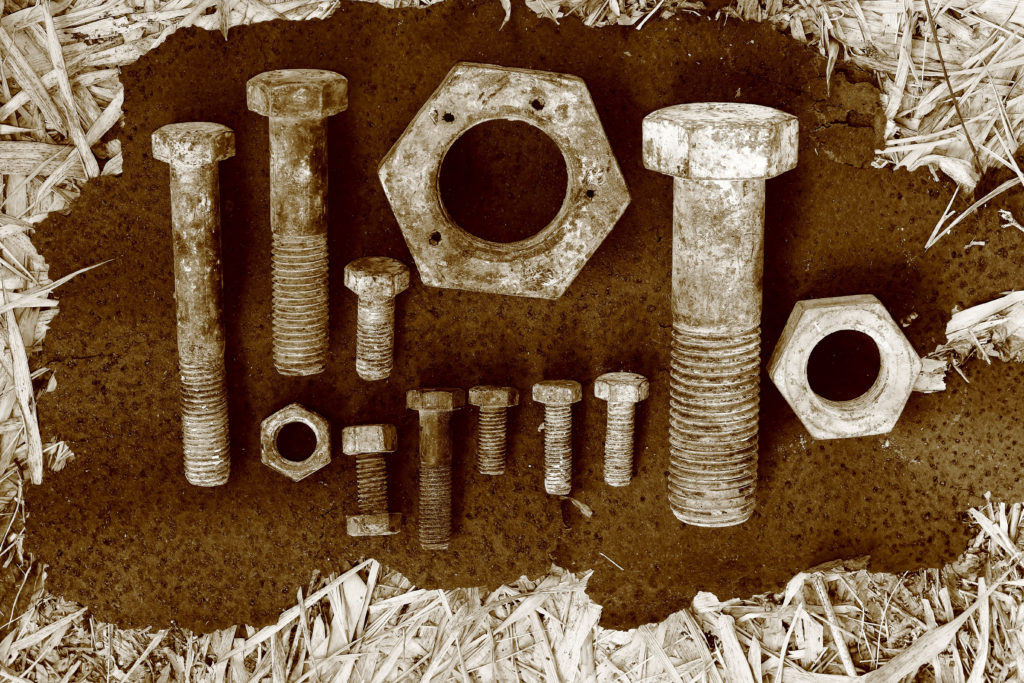Fasteners – What Type To Use?

The inspiration for today’s topic came about when a customer sent us a motor that has a premature bearing failure due to a soft foot issue. If you need a refresher on soft foot problems I had blog covering this earlier in May that can be found here: https://gesrepair.com/common-causes-of-premature-motor-failure-soft-foot/. The interesting thing about this particular motor’s problem was that while three of the feet inspected looked fine, one in particular had a good amount of corrosion present around the mounting hole. We called the customer and had them inspect the hardware used to mount the motor and sure enough one of the four bolts was made of a different material and had completely rusted away. The reason being the motor was in an environment with a high amount of salt water processing and the personnel that did the installation used a regular bolt and not a stainless steel bolt. It was a case of using what was on hand, rather than what was appropriate for the application. The customer learned the hard way, which in this case resulted in a failed motor.
Zinc Coated
While dull in color and rather unappealing to the eye, zinc coated fasteners are desirable for general corrosion resistance. But one must remember that it is a coated product so in applications where there may be abrasion concerns, eventually this coating will rub off and start to rust. This type of coating is best used when an economical, yet moisture resistant fastener is preferred in an indoor environment.
Stainless Steel
The important thing to watch out for when it comes to stainless steel fasteners is to know whether or not they are true stainless versus stainless coated. If it is stainless-coated then it will provide protection similar, or in some cases worse, than zinc coated. If the price tag seems too good to be true, often this is an indication that the fastener is stainless-coated only. True stainless steel runs all the way through the material and will protect regardless of surface wear. It is critical to remember that stainless steel is much more brittle than regular steel, so in cases where the fastener will bear a load make allowances for this when making a substitution outside of the original design.
Hot-dipped galvanized steel
This galvanized steel is like zinc coated but has a much thicker coating allowing for corrosion resistant both indoors and outdoors. It has a rough dull grey appearance. One must be careful when welding on galvanized steel as it can release hazardous fumes.
Be sure to visit us online at gesrepair.com or call us at 1-877-249-1701 to learn more about our services. We’re proud to offer Surplus, Complete Repair and Maintenance on all types of Industrial Electronics, Servo Motors, AC and DC Motors, Hydraulics and Pneumatics. Please subscribe to our YouTube page and Like Us on Facebook! Thank you!